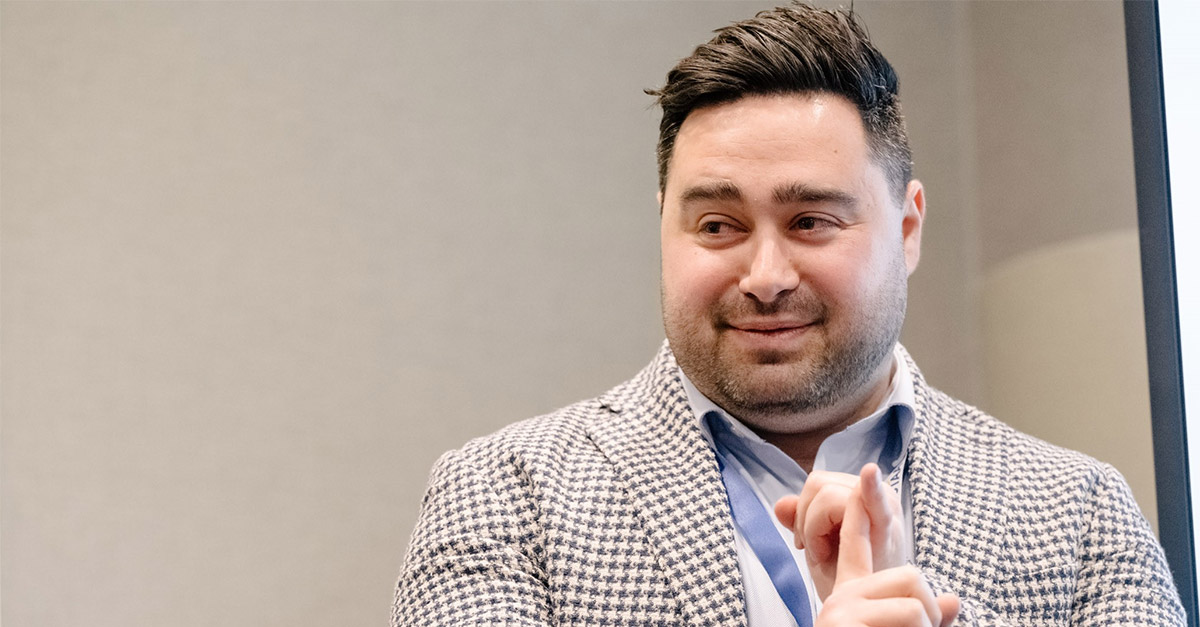Starwood Brand Set to Re-Emerge After SH Name Change
This month, SH Hotels & Resorts will change its name to Starwood Hotels, a name returning to the hospitality landscape nearly a decade after Marriott International acquired and integrated Starwood Hotels & Resorts. The company's CEO, Raul Leal, spoke...
/Lodging/Raul_Leal.jpg?n=2858&tr=w-1200%2Cfo-auto)
SH Hotels & Resorts' Leal discusses:
Bringing back the Starwood brandWhy corporate travel is "critical" to the companySetting "reasonable" policies for sustainability and DEINearly a decade after Marriott International acquired and integrated Starwood Hotels & Resorts, the Starwood name is returning to the hospitality landscape, under the aegis of its original founder and CEO, Barry Sternlicht. The original Starwood Hotels & Resorts formed from Sternlicht's real estate firm Starwood Capital in 1994, and it grew to one of the largest hotel companies in the world via acquisitions, including Westin and Sheraton, and newly created brands, including W, until its eventual acquisition by Marriott for $13.6 billion in 2016. Sternlicht's Starwood Capital, meanwhile, has remained active in the hotel space via its affiliate SH Hotels & Resorts, which owns the brands 1 Hotels, Treehouse Hotels and Baccarat and has a total portfolio of 40 hotels open or under construction. This month, SH Hotels & Resorts will change its name to Starwood Hotels. The company's CEO, Raul Leal, spoke to BTN executive editor Michael B. Baker during the recent Americas Lodging Investment Summit about the rebrand, how Starwood plans to court corporate travel and the company's growth plans. An edited transcript follows.
BTN: Why are you bringing back the Starwood name, and what are your current growth plans?
Raul Leal: The combination of all that is the openings we have coming up this year, which is six, and then about five openings a year for the next four years. This year, we open the 1 Hotel Tokyo, the 1 Hotel Melbourne, 1 Hotel Copenhagen, 1 Hotel Seattle and two Treehouse hotels, one in Manchester, [U.K.], and Silicon Valley, which is really charming. Barry had the rights to the name Starwood, and we thought it would be a good time, since we're about to grow and do some other things, to bring back the Starwood legacy. The brand has a heartfelt effect upon people. We're going to take a run at it as Starwood hotels. [Sternlicht's] still as passionate as ever about the industry and has some pretty strong thoughts on the future of the consumer experience and design, so we're in a good place, and we're supported by Starwood Capital, so when interest rates come down, we'll start doing some more acquisitions and conversions.
BTN: What's your mix of corporate business versus leisure?
Leal: It varies. In our urban hotels, it's around 70 percent corporate, but that depends on which days of the week. We're heavy leisure Thursday, Friday and Saturday, which is great, because on the lifestyle hotel side, you do get the leisure business. If you have the offerings on the weekend, people see it as a place to escape, or they blur the lines and stay three days [for business] and get the wife and kids out there. In Hawaii, it's a totally different mix, 90 percent leisure and some corporate association meetings. Still, we believe the transient and group business is critical. The hotels we open all have to have great meeting spaces. [It] may be a little different take on the meeting spaces—we may not be the traditional meeting spaces—but certainly we say the corporate travel is critical.
BTN: Do you do corporate sales across your portfolio, or is it all at the property level?
Leal: We do both. We have tremendous teams in the hotels, direct sales and revenue management, and then we have global teams: global sales, global digital, every discipline.
BTN: What are the long-term development plans?
Leal: It's hard to say. I don’t think it'll be like the old Starwood with 1,000 hotels because it's really about quality over quantity, and special types of hotels and great partners. When you're growing the way that we are, where we actually operate the hotels and invest in some of the hotels, the partners are important. We have to have like-minded partners, because we're not in Australia all the time or in Japan all the time, so partners are our stewards for all those brands.
It's a bit of a tricky process. I can't tell you what the number is going to be, because we may decide to acquire some company one day and convert them all to 1 Hotels or something, but it certainly won't be 1,000 hotels—I don't think. Maybe it could happen.
BTN: Will you expand into other tiers?
Leal: I think so. I think we'll add other segments. Right now, it's perfect what we have. We have this really quirky fun four-star brand [Treetop] that's going to rocket when we start opening them. Then we have 1 Hotels, which has a cult-like following and somewhere in the 4.5-to-5-star level, then [the luxury tier] Baccarat. So, I think we're positioned to take advantage.
BTN: Will Starwood have a loyalty program?
Leal: 1 Hotels has an interesting loyalty program called Mission. It's incredibly popular, because it's about giving back. Of course, you get room nights and all that stuff, but it really is about giving back to some of your favorite charities and things like that. It's unique to that brand. As far as the new Starwood, at the moment there is not going to be any global points program. We're not going to rule it out for the future. We're going to grow a little bit more, make a few announcements then decide.
BTN: What sustainability standards do you have in place?
Leal: We have fully drawn-out standards that the developer has to [follow]. Some things are non-negotiable. With 1 Hotels, sustainability isn't. The minimum is that the hotels have to be certified, either LEED-certified or whatever it is in their respective country. We give a second life to some of our interiors. London is a great example. The front desk is a 100-year-old tree from the farmland we brought in and repurposed. Also, the science behind it: We do measure and track emissions, energy conservation and water.
When you have a brand where the purpose is do all the good you can, which is the compass for 1 Hotels, our team members love that, and we encourage them to do that: lots of programs internally and community-wise. Our turnover is significantly lower because of the sustainability mission, because we're caring. We're not activists, but our position is the world is beautiful, and we want to keep it that way. So, we want to be reasonable about it as we go along and continue to make an impact in every city we go to.
Sustainability is highly weaponized and politicized. You see countries and companies setting goals that may never be attainable, and some of the people setting the goals, with all due respect, 30 years from now might not still be around. Our thought process is, if all of us can just do a bit at a time—maybe it's not the 100 percent we're targeting, but 50 percent or 40 percent—if all the businesses thought about it in that way, the world in general would be greatly impacted, instead of putting some mind-blowing goals out there nobody knows whether you'll achieve. As science continues to develop, there will be other things that can help us take better care of the planet in different ways.
BTN: Are you changing course on diversity, equity and inclusion policies?
Leal: Like anything in life, it's about common sense. Of course we have DE&I initiatives and we're proud of it, but everything has to be in moderation, and everything has to make common sense. Before DEI, my approach has always been to have open-door, fair-treatment policies. As long as you manage along the vein of that and have reasonable DEI objectives for everybody, and it certainly shouldn't be about hitting a quota of any nature, it's about doing what's best for the community and people inside the hotel, making sure they are being treated fairly at all times and driving initiatives that matter. So, we're going to stick to our plan.

 ValVades
ValVades /Lodging/Raul_Leal.jpg)
































